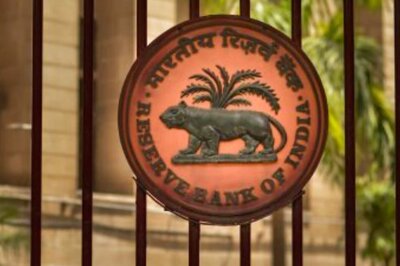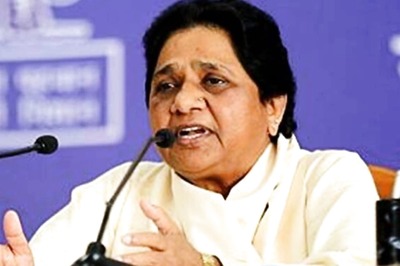
views
The present pandemic has resulted in a lot of economic stress—even as it has presented new opportunities for India and its entrepreneurs. There has been an attempt over the last many years to create a robust policy framework which would untap the economic potential of the country. This would include reforms in the Insolvency & Bankruptcy Code, the introduction of the Goods & Service Tax, farm laws, removal of obsolete laws and decriminalization of various provisions of the Companies Act.
The approach that has been adopted is one of removing constraints that affect the productivity of Indian companies thereby enabling them to focus on the essential—that is, to grow their businesses. Of course, the process has been a long-drawn one due to the baggage of archaic laws, excessive regulations and ultra-conservative institutions.
A lot of the early improvements in this regard were undertaken with the objective of improving India’s Ease of Doing Business rankings. Our rankings have surely improved, however enforcement of contract continues to serve as a key impediment to further improvement.
To be fair, well laid out rules, clear laws and a robust mechanism to update them should result in reducing litigation involving the government. As good as it sounds in theory, in reality, achieving the same is far more complicated as the government has been one of the largest litigants. A lot of such litigation pertains to contracts—and their enforcement or an attempt to seek redressal. The government has rightly acknowledged this over the last several years as it attempts to reduce the tendency for litigation across departments, such as taxation etc.
However, even if government were to create well laid out rules, avoid unnecessary litigations and creative interpretations, the issue of lack of enforcement will continue to persist. At the end of the day, enforcement of contracts would require adequate judicial capacity—to be able to accelerate the process of dispute resolution irrespective of whether it is between a government and a private party, or between two private entities.
ALSO READ | After Pandemic, Need More Simplicity in Ease of Doing Business: NITI Aayog CEO Amitabh Kant
The reason why enforcement of contracts is important is because India’s short-term economic objective is to get a greater share of global value chains in India. These value chains have well defined contracts which must be enforced in the event of non-compliance to ensure a credible threat for the vendor to deliver what has been agreed to. Doing so is important for global MNCs such as Apple and Samsung, to be able to maintain leaner supply chains. In the event that any legal dispute results in a prolonged legal fight, the prospects of an alternative settlement are higher, even though they may not necessarily result in a just outcome. Therefore, we may create an alternative dispute mechanism whereby the key objective of delivering justice may not be interpreted as the party with greater financial power could dominate such mechanisms.
To illustrate this, let us take the example of Maharashtra, Andhra Pradesh and Punjab governments, each of which have raised objections to some form of contract that was signed by their predecessor. In the case of Maharashtra and Andhra Pradesh, projects have been effectively stalled, if not cancelled thereby causing significant economic loss for the private sector. In the case of Punjab, it is still exploring the terms of the power purchase agreement signed by the previous government.
That state governments can violate contracts in the event of a change in the political administration is bad for the economy—and also a bad precedent. However, given their sheer size and economic might, most private companies are unlikely to even consider taking a legal route to enforce the contract. This is precisely why it is important to create a framework that prevents such unilateral violation of contracts by any government.
For the private sector and their contract enforcement, it is encouraging to note that the government has created a mechanism whereby micro, small and medium enterprises or MSMEs should receive their payment within a stipulated period post the delivery of goods. This ensures certainty in cash-flows for MSMEs by creating a self-enforcement mechanism. However, several large companies are yet to sign up on the new portal while even MSMEs are just beginning to register on the same.
Ultimately, there is a real possibility of leveraging technology to create a mechanism for enforcement of contracts in India. This could mean the use of what is often now termed as ‘smart contracts’ which could potentially solve the issue of enforcement in India. Given our early success in FinTech as a mechanism to solve several key problems faced by the country, there is no reason why the same cannot be achieved to address the challenges of enforcement of contracts. In the long run though, we would need solid judicial and policing reforms to create a more dynamic society. Doing so is not just essential from an economic standpoint but more so from sociological and ethical considerations.
Somya Luthra is a New Delhi-based legal researcher. The views expressed in this article are those of the author and do not represent the stand of this publication.
Read all the Latest News, Breaking News and Coronavirus News here.



















Comments
0 comment